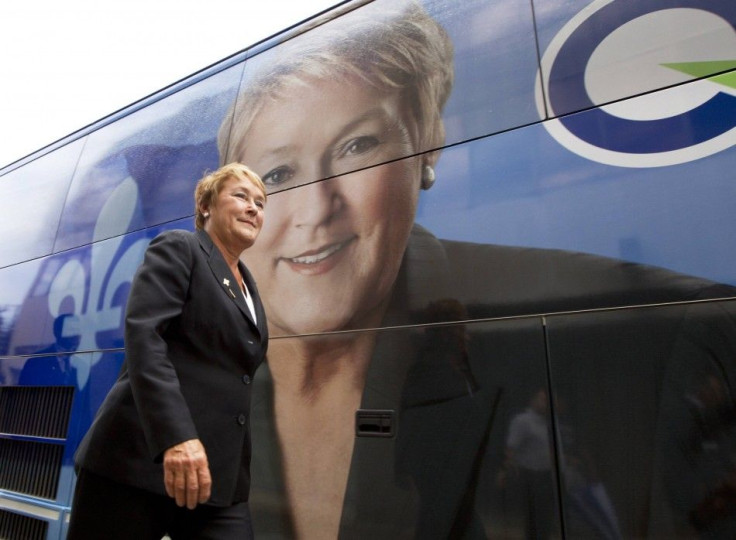Will They Or Won't They? The Economics Of Quebec Separatism

The Canadian province of Quebec is set for an election on Sept. 4 that will pit pro-federalist Liberal Party, which currently holds a majority in the National Assembly, against the pro-separatist Parti Quebecois, whose long-term goal is independence for the French--speaking province.
The centrist Liberals, led by Premier Jean Charest, support Quebec's status as a federal state within Canada.
The left-leaning PQ has accused the Liberals of allowing Prime Minister Stephen Harper's right-leaning Conservative Party government in Ottawa to subvert Quebec's interests on key issues such as cuts to employment insurance, gun regulation and stricter penalties for criminal offenders in the wake of mass student protests against tuition hikes.
"The street has made a lot of noise," Charest said, referring to the protests while at a campaign stop in Quebec City. "It's now time for Quebecers to talk. We must decide the type of society we want to live in."
"I think it would do Mr. Charest some good to go into the street, to better understand the needs of Quebecers," PQ opposition leader Pauline Marois said Wednesday.
"Canada has become a risk for Quebec."
Marois and the PQ support Quebec seceding from the rest of Canada and establishing an independent country, though she would ultimately put the decision up to a referendum.
"We need to eventually choose between remaining a province of Canada or to become a country," Marois said.
"More than a distinct province, we prefer that Quebec be a normal country. We will choose liberty."
Originally settled as a French colony in the mid-18th century, Quebec has a predominantly French-speaking population. Compared to the rest of English-speaking Canada, it has a distinct cultural identity that has fueled a separatist movement ever since it was confederated as a Canadian province in 1867.
Charest has strongly criticized the PQ's separatist agenda, saying secession would be devastating for Quebec's economy.
"The choice is clear, between stability and instability," he said in a recent news conference.
Quebec's economy in 2010 represented nearly 20 percent of Canada's GDP, which is roughly in line with the proportion of its population to the rest of the country, about 23 percent.
The province's aerospace and mining industries are heavily reliant on exports to the U.S., though it is not clear how secession would affect that trade relationship, particularly with respect to U.S. trade with the rest of Canada.
Ian Irvine, professor of economics at Concordia University in Montreal, Quebec, made it clear that he supported the federalist system and that secession would create a lot of "uncertainty" in Quebec's economy.
"Quebec has the highest debt to GDP ratio of any province in Canada," Irvine said. "On its own, that would create a lot of uncertainty for credit rating agencies, which would most likely make borrowing costs go up."
He also mentioned the transitional problems of deciding on what monetary system to use, reissuing passports and renegotiating its position within the North American Free Trade Agreement between the U.S., Canada and Mexico.
"These transitional problems could become permanent problems," he said. "These are not minor issues."
Economic feasibility aside, the PQ would need a majority vote in the Assembly to hold a referendum on secession, but polling data indicates that the party is not likely to win a majority of seats.
A recent poll showed the PQ leading over the Liberals 33 percent to 31 percent, meaning that if the PQ won that proportion of Assembly seats, it would only be able to form a minority government and would still need support from other parties to push through a referendum on secession, which would then require 850,000 signatures to be put to a popular vote in Quebec.
Two previous referendums on secession held in 1980 and 1995 failed to pass.
"The day that we judge that it is possible to decide to choose a country, we will ask the question, but you know very well that our agenda is open on that issue," Marois said, toning down the separatist rhetoric.
"Today, we are not voting for or against a referendum. We are voting for or against a future government."
© Copyright IBTimes 2025. All rights reserved.



















